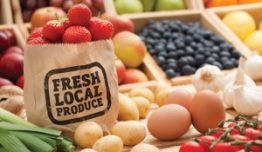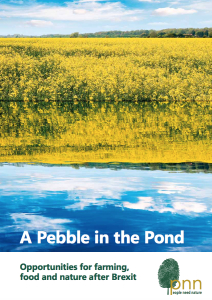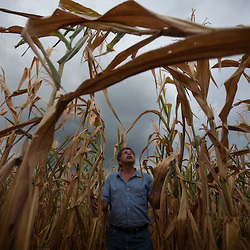The Landworkers Alliance “is an organisation of farmers, growers and land-based workers… campaigning for policies to support the infrastructure and markets central to members livelihoods, building alliances and encouraging solidarity. [They] also raise awareness of the role that small-scale producers, family farmers and land-based workers play in providing food security, environmental stewardship, rural livelihoods, strong communities, animal welfare and high-quality affordable food.” Here are some films they’ve just made– really worth watching.
When I started the project of this blog, I wanted to document what I was cooking and thinking, and often how the two related to each other. I was turned off and depressed by “lifestyle” blogs and food-porn posturing. I wanted to create a wide exploration of what it could mean to politicise a meal, to historicise and contextualise it, showing its antecedents and effects
I’m not sure how far I’ve come or where I’m going, but the vision remains strong that food on its own is not inherently interesting a subject to me, pleasurable as it may be to eat something delicious or gaze at beautiful food styling wishing oneself into the scene.
The video below interests me. I happened upon it because Sean Hawkey is a friend and had pointed something else out on the site. Sean is a photographer and filmmaker, often working for Development groups. I love how in the case of “The Breakfast Recipe,” he’s put the actual breakfast in a chain of events and a particular social milieu. It might feel feel easier to express this scenario in places where people grow their own food. But it seems really compelling to imagine the full weight of these stories for those of us buying our food in a globalised world. There will be stories inside of stories, with infinite digressions. All of which makes what we eat more compelling.
New Year’s Resolution to experience and express gratitude– I’m grateful to people who work really hard on the issues I deeply care about. Miles King is one of them. Here’s what he says about Brexit opportunities.
I’m delighted to be able to tell you about this new report which is published today. It’s the first People Need Nature policy report – A Pebble in the Pond: Opportunities for farming, food and nature after Brexit. You can download it here.
Here’s the summary:
As England prepares to leave the EU we have a once in a lifetime opportunity to change the way we support England’s land managers. This report shows how leaving the EU will enable us to channel money from the public purse to land managers in such a way that they can both produce food, help nature and provide all the other benefits society needs.
The last forty years of farm subsidies from Europe via the Common Agricultural Policy has contributed to a dramatic decline in nature on farmland – land that covers three quarters of England. The vote to leave the EU means we…
View original post 382 more words
Something uplifting, amazing, inspiring to watch.
“We all love the waters. Water is precious.”
Petition to stop construction of the Dakota Access Pipeline.
Ten Ways to Help the Standing Rock Sioux in their work to protect their waters.
This is a very informative and sobering video discussing the pitfalls of the potential trade agreement TTIP– the Transatlantic Trade and Investment Partnership. TTIP would represent huge benefit for gigantic agribusiness players, and severely undermine local, ecological and democratic approaches to food and growing.
PLEASE educate yourself and others and keep making a stink in the realms you have any influence– with your representatives, your politicians, your social media, your streets. Use your voice.
By the way, I found this SHOCKING: Read the rest of this entry »
I’m linking to an important response to some of the greenwash that takes place around the discussion of agriculture and climate change. The big United Nation Conference of Parties on climate change is about to take place in Paris, yet extremely significant greenhouse gas emissions from agriculture are not even on the agenda (!!!). (And this.) Nonetheless there will certainly be a lot of conversation and media attention to issues of food and climate, and “Climate Smart Agriculture” with all its public-relations backing might get lots of airplay in the discussions that surround the central negotiations.
So many of us hope against cynicism that the urgency of the climate crisis can see a joining together of people and concerns. When you scroll down to the list of signatories to this letter, you get an idea how vast our social movements can be. We need people, not corporations, at the centre of decision making, envisioning and enacting a better future. Our messages must be powerful for our language to be so coopted and coveted by them. Please share this letter in response to agribusiness rhetoric, and as foodies concerned with climate justice.
DON’T BE FOOLED!
CIVIL SOCIETY SAYS NO TO “CLIMATE SMART AGRICULTURE” AND URGES DECISION-MAKERS TO SUPPORT AGROECOLOGY
SEPTEMBER 2015 Read the rest of this entry »
Reblogging a really good round-up of social and ecological issues pertinent to British farming at the current moment of climate change and CAP subsidies. Am sure there’s lots that readers would consider arguable -some real challenges to the status quo – but well worth a read and a share. Would be very interested to hear responses.
Food and the Environment
A guest post from environmental campaigner and writer Miles King, who blogs on nature here.
We all need to eat and most of us want to see at least some of our food produced in Britain, if it can be. Who knows, with climate change already with us, English banana crops might not be so ridiculous an idea in 50 years.
Self sufficiency is not a realistic prospect and it should not even be considered as an appealing principle to aspire to – what is the point of Britain producing sugar beet with a higher carbon and environmental footprint than the cane sugar we import from countries who benefit from its trade?Especially when that Beet has a special subsidy and tariff system to protect its producers from competition.
Currently food production in Britain is subsidised through the Common Agricultural Policy to the tune of around £200…
View original post 2,022 more words
I just happened upon this wonderful illustrated history of Johnny Appleseed. Enjoy!
And here’s something that makes an interesting (and convincing) contention: Johnny Appleseed and the Golden Days of Hard Cider.
Am reblogging a Call-to-Arms-I-mean-Forks piece by my good friend Vanessa. She looks deeply at the concepts of food security and food sovereignty contextualised in a world governed by the expediency of financial profit and control. The article is insightful though disturbing, and also sums up so much of why I write this blog: to get “creative about our shared liberation, and quietly or noisily rebel, in the kitchen, the garden, the hedgerows, the shops and in social gatherings.”
 It is a standing joke in my home that when dinner appears, whether it’s a curry or a quiche, someone has to ask “whose is it?”
It is a standing joke in my home that when dinner appears, whether it’s a curry or a quiche, someone has to ask “whose is it?”
The quip is an affectionate lampoon of my step-father, who for as long as I’ve known him has never eyed a piece of meat on the Sunday lunch table without asking precisely that question.
View original post 1,896 more words



